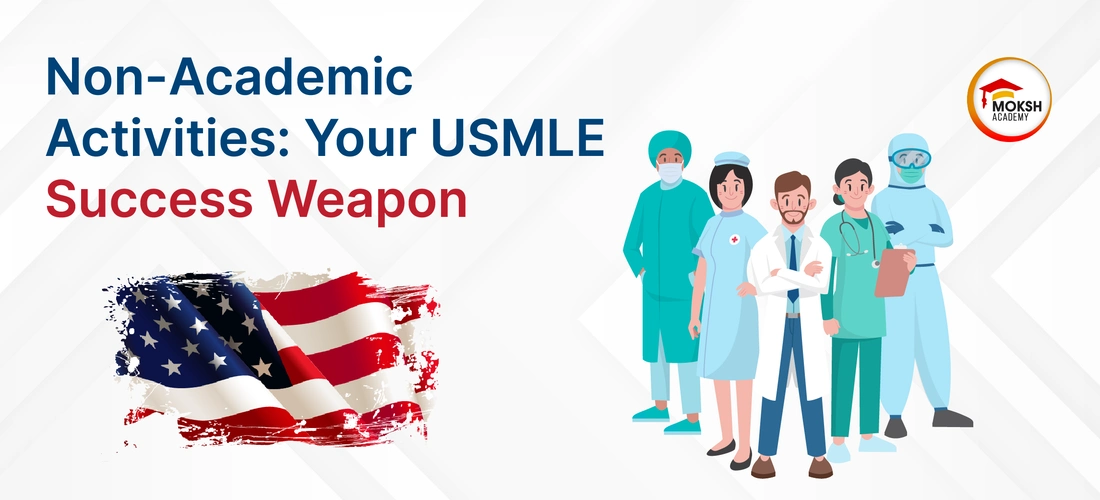
The USMLE Step 1. A three-letter acronym that sends shivers down the spines of aspiring physicians, a gateway to the promised land of residency, and a seemingly impossible mountain of medical knowledge. We dedicate years, countless cups of coffee, and a significant portion of our sanity to conquering this beast. But in the laser-focused pursuit of academic perfection, we often overlook a crucial ingredient for success: non-academic activities.
Yes, mastering First Aid and memorizing sketchy diagrams is essential. But imagine this: you're locked in a mental battle with a never-ending question bank, your brain feels like mush, and motivation is dwindling faster than your coffee supply. It is where the often-ignored realm of non-academic activities steps in, not as a distraction but as a potent weapon in your arsenal.
Stress Management and Mental Resilience:
The USMLE is a marathon, not a sprint. Sustaining peak performance requires mental stamina, and non-academic activities are your stress-busters. Hit the gym for an endorphin-fueled power-up, lose yourself in the rhythm of your favourite music, or meditate your way to inner peace. These activities help you de-stress, recharge your mental batteries, and face the next study session with renewed focus and clarity.
Cognitive Boost and Memory Magic:
Have you ever heard of the "use it or lose it" principle? It applies to your brain, too. Engaging in hobbies like playing music, painting, or learning a new language activates different neural pathways, enhancing cognitive flexibility and memory formation. This translates to better information processing, improved recall during exams, and a sharper mind, ready to tackle even the most challenging questions.
Creativity and Problem-Solving Prowess:
The USMLE loves to throw curveballs. Non-academic activities can hone your creative and problem-solving skills, equipping you to think on your feet and navigate the complexities of medical exams. Participating in debates, improvisational exercises, or even playing strategic games trains your brain to think outside the box, a valuable asset for deciphering those tricky USMLE questions.
Time Management Masterclass:
Juggling academics, personal life, and extracurricular activities forces you to develop time management skills that would make superheroes jealous. Learning to prioritize tasks, stick to a schedule, and maximize every minute is crucial for Step 1 preparation and the demanding life of a physician. These skills will help you conquer your to-do list, avoid burnout, and stay on top of your game in the exam room and beyond.

The Humanization Factor:
Remember, you're not just a medical student; you're a human being with passions, interests, and a unique story. Non-academic activities remind you of this. They allow you to connect with yourself, explore your desires, and build a well-rounded personality for your CV building https://mokshacademy.com/blog/usmle/mastering-the-art-of-cv-building-for-usmle-a-step-by-step-guide.This holistic approach to life can reduce burnout, boost motivation, and remind you why you embarked on this challenging journey in the first place.
So, the next time you feel like a cog in the Step 1 preparation machine, remember stepping away from the books isn't a sign of weakness; it's a strategic move towards success. Embrace non-academic activities as an investment in your well-being, cognitive function, and overall preparedness for the USMLE Step 1. Go for that run, pick up that paintbrush, or lose yourself in a good book – your future doctor self will thank you for it.
Connect with Counsellor
Conclusion:
The USMLE Step 1 may seem like an academic Mount Everest, but you can conquer it with the right tools and mindset. Remember, non-academic activities are not distractions but essential weapons in your arsenal. Use them wisely, find the activities that resonate with you, and watch your performance soar.



